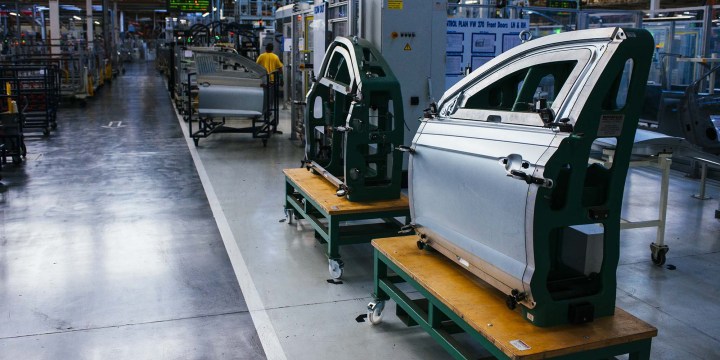AUTOMOTIVE HEADWINDS
Vehicle sales up, but government urged to act on power cuts, logistics and new energy opportunities

It’s becoming extremely difficult for original equipment manufacturers to convince their head offices to consider South Africa an attractive destination for investment due to rolling blackouts and inefficient logistics infrastructure.
New vehicle sales might be up in South Africa, but the industry is battling on all fronts to recover, says Naamsa | The Automotive Business Council.
The council released its new vehicle sales figures for October, which it said remained reassuring despite tough economic and logistics pressures, although the pace of recovery year-on-year has eased to 13.1%.
Thanks to seasonal support from the car rental industry, which boosted the new passenger car market with a 17.4% increase in sales, Naamsa noted that growth prospects for the rest of the year remain muted as higher interest rates and higher debt servicing costs weigh on disposable income.
Add to that a sharp rise in the diesel price (just over R1.40/litre) and a 51c/litre hike, with even bigger increases expected next month.
Naamsa noted that while the pace of recovery has started to ease, the performance of the new vehicle market was reassuring, considering headwinds such as the logistical disruptions during the month.
Domestic new vehicle sales in October rose 11.4% to 45,966, while export sales increased by 16.1% to 29,508 units in October 2022, compared with the 25,407 vehicles exported in October last year.
Overall, 82.6% of all new sales came from dealerships, 13.1% from the rental sector, 2.4% were sold to the government and 1.9% to industry corporate fleets.
Year-on-year, 10.4% more new passenger cars sold in October, an increase from 27,716 to 30,597 units.
Domestic sales of new light commercial vehicles, bakkies and minibuses gained 14.3%, from 11,148 to 12,738 units; medium and heavy trucks sold 769 units and 1,862 units respectively in a 29.9% rise; while heavy trucks and buses gained 3.4%.
The exports sales number is also up 16.1% YoY, at 29,508 units compared with the 25,407 vehicles over the corresponding period in 2021.
Commenting on the latest sales figures, the National Automobile Dealer Association (Nada) said it was encouraged. Nada chairperson Mark Dommisse said: “The market is showing unbelievable resilience in the face of negative economic pressures.
Visit Daily Maverick’s home page for more news, analysis and investigations
“We, at Nada, are immensely proud of the way our members keep astounding market commentators with their sales in a market which has been rocked by floods, strikes, rising interest rates, load shedding, high fuel prices, a struggling economy and stock shortages.
“Their performance is admirable.”
At last week’s Auto Week in Kyalami, Naamsa president Neale Hill was frank in his assessment of the industry.
He said South Africa has been hammered by a series of adverse events over the past two-and-a-half years — not only the effects of Covid, with severe consequences for the entire value chain; but also the global shortage of semiconductors; persistent supply chain disruptions; Russia’s invasion of Ukraine; the July 2021 riots in KwaZulu-Natal and Gauteng; three force majeures in 15 months due to strike action, cyber attacks and other economic disruptions at Transnet which caused an escalation of logistics costs; power supply “challenges”; and the KZN floods, which hurt Toyota and many of its suppliers, employees and surrounding communities.
“A key priority focus for the government must be to create a conducive environment to attract investments into the manufacturing sector, aimed at unlocking the country’s real economic potential and creating the all-important jobs our country needs so desperately.
“However, the government is simply moving too slow in providing clarity in the case of many critical automotive industry aspects, without even mentioning the escalating energy crisis and now also water shortages in many parts of the country.”
He warned it was becoming extremely difficult for original equipment manufacturers (OEMs) to convince their head offices to consider South Africa an attractive destination for investment, with the escalating duration and intensity of rolling blackouts as well as the deteriorating, costly and inefficient logistics infrastructure in the country.
Not only that, but SA was starting to eat the dust of other African countries such as Egypt, Morocco and Rwanda, which were making things happen in the new energy vehicle space.
“As part of the global automotive environment, the domestic automotive industry simply cannot afford delays.
“Sadly, the decisions for the next generation models for most OEMs have already been made and South Africa continues to miss these opportunities as policy clarity and timing are imperative for these decisions by the head offices.”
So, more foot-dragging by the government as confidence in the economy wanes.
The Absa Purchasing Managers’ Index isn’t reflecting much optimism either, with the index tracking business conditions slipping to 49.2 — the most pessimistic outlook since May 2020, weighed down by the endless power cuts. BM/DM















 Become an Insider
Become an Insider
Comments - Please login in order to comment.